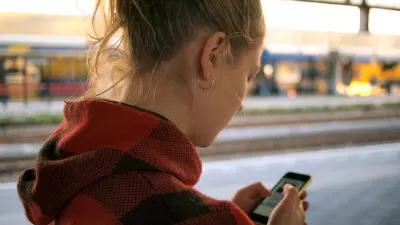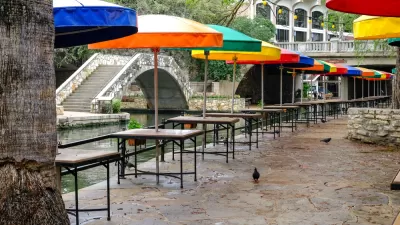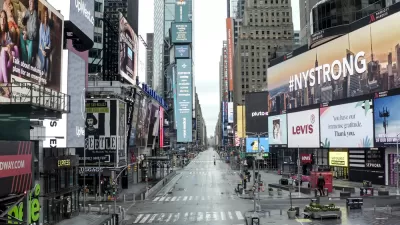Data from millions of cellphone customers will be used to locate and alert individuals who may have come into contact with people carrying the virus.

"Prime Minister Benjamin Netanyahu of Israel has authorized the country’s internal security agency to tap into a vast and previously undisclosed trove of cellphone data to retrace the movements of people who have contracted the coronavirus and identify others who should be quarantined because their paths crossed," report David M. Halbfinger, Isabel Kershner, and Ronen Bergman.
The plan is to use geolocation data from cellphones to identify people who may have been exposed to the virus and send text messages telling them to isolate themselves. The data is regularly collected for counterterrorism purposes, but using it for public health efforts is new.
Halbfinger, Kershner, and Bergman go into more detail about the political situation in Israel and the debate around privacy concerns. "It is the existence of the cellphone metadata trove and its use to track coronavirus patients and carriers that privacy advocates say poses the greatest test of Israeli democracy at an extraordinarily fragile moment," they say.
[Update: new reports reveal that cellphone companies in numerous countries around the world are sharing data with health officials. See articles published by the The Verge and Reuters for more.]
FULL STORY: To Track Coronavirus, Israel Moves to Tap Secret Trove of Cellphone Data

Manufactured Crisis: Losing the Nation’s Largest Source of Unsubsidized Affordable Housing
Manufactured housing communities have long been an affordable housing option for millions of people living in the U.S., but that affordability is disappearing rapidly. How did we get here?

Americans May Be Stuck — But Why?
Americans are moving a lot less than they once did, and that is a problem. While Yoni Applebaum, in his highly-publicized article Stuck, gets the reasons badly wrong, it's still important to ask: why are we moving so much less than before?

Using Old Oil and Gas Wells for Green Energy Storage
Penn State researchers have found that repurposing abandoned oil and gas wells for geothermal-assisted compressed-air energy storage can boost efficiency, reduce environmental risks, and support clean energy and job transitions.

Updating LA’s Tree Rules Could Bring More Shade to Underserved Neighborhoods
A new USC study finds that relaxing Los Angeles’ outdated tree planting guidelines could significantly expand urban tree canopy and reduce shade disparities in lower-income neighborhoods, though infrastructure investments are also needed.

California's Canal Solar Projects Aim to Conserve Resources and Expand Clean Energy
California’s Project Nexus has begun generating electricity from solar panels installed over irrigation canals, with researchers and state agencies exploring statewide expansion to conserve water and boost clean energy production.

HHS Staff Cuts Gut Energy Assistance Program
The full staff of a federal program that distributes heating and cooling assistance for low-income families was laid off, jeopardizing the program’s operations.
Urban Design for Planners 1: Software Tools
This six-course series explores essential urban design concepts using open source software and equips planners with the tools they need to participate fully in the urban design process.
Planning for Universal Design
Learn the tools for implementing Universal Design in planning regulations.
Heyer Gruel & Associates PA
City of Moreno Valley
Institute for Housing and Urban Development Studies (IHS)
City of Grandview
Harvard GSD Executive Education
Salt Lake City
NYU Wagner Graduate School of Public Service
City of Cambridge, Maryland





























